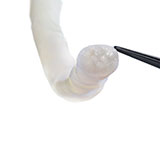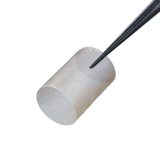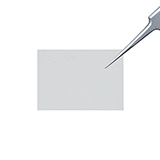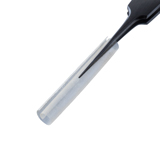iatrogenic trigeminal nerve injury procedures
Despite using the best care and most advanced techniques, inferior alveolar and lingual nerve injuries happen. Often the patients recover, but some have varying degrees of permanent sensory impairment. Fortunately, there are surgical solutions available to repair these injuries.
Trigeminal nerve injuries significantly impact patient quality of life, both physically and emotionally. Simple everyday activities like eating, drinking or brushing teeth can become a challenge.
remember the following:
- Patients with persistent neurosensory disturbances after inferior alveolar or lingual nerve damage consistently report reduced quality of life related to their injuries.1
- When it comes to nerve injuries, early intervention is key. Studies have shown a high rate of success for trigeminal nerve microsurgery, especially when the nerve is repaired in 90 days or less from the date of injury.2
solutions
 Avance® Nerve Graft
Avance® Nerve Graft  Axoguard Nerve Connector®
Axoguard Nerve Connector®  Axoguard HA+ Nerve Protector™
Axoguard HA+ Nerve Protector™  Axoguard Nerve Protector® See sizing and IFU on solution pages
Axoguard Nerve Protector® See sizing and IFU on solution pages more procedures
contact your area rep
Fill out a short form to contact a rep and get more information about our nerve repair solutions.
Sign up for our newsletter to get the latest research, news and in-depth insights about nerve repair.
references
- Leung YY, et al. Trigeminal neurosensory deficit and patient reported outcome measures: the effect on quality of life. PLoS One. 2013;8(10):e77391.
- Zuniga JR. Sensory outcomes after reconstruction of lingual and inferior alveolar nerve discontinuities using processed nerve allograft—a case series. J Oral Maxillofac Surg. 2015;73(4):734-744.